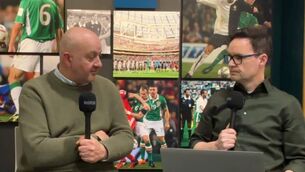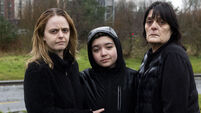Positive healing
I SUDDENLY felt as if I was floating. My arms went light, I felt as if I was going up in the air even though I hit the ground. It was terrifying and I knew straight away something was seriously wrong."
As a rugby player, it is the one thing you never dwell on before a match.















